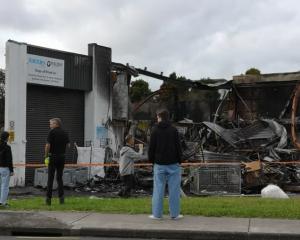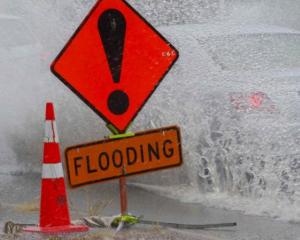Swearing isn't always a negative thing and can be used to build camaraderie between people, according to a linguistics academic.
A woman made headlines today after she was evicted from her Mt Eden flat for swearing in front of her landlord when he left a gate open allowing her dog to run out on to the road.
Vrnda Torckler used the word f*** and landlord Vincent Calzone said the language was symptomatic "of a personality type" he didn't want in his house.
Massey University linguistics lecturer Anthony Fisher said people tended to assume any instance of swearing was a negative thing and that it was an expression of aggression, impoliteness or rudeness.
However, linguists had found over and over again that wasn't the case.
Dr Fisher said a Victoria University study had found moaning about a job and using the word f*** served to build camaraderie between people.
"It was a way of offloading negative feelings in a safe environment and sharing that negative feeling towards an aspect of the job, which actually brought people closer together," he said.
When somebody swore they were signalling their belief it was okay to swear in the present company. However, people could sometimes get that wrong as could have been the case with Ms Torckler.
"Maybe the landlord in that particular context perceived that it was inappropriate for that person to use that language in that context," said Dr Fisher.
Dr Fisher said the word had been spoken in the street and wasn't directed at the landlord but it was an expression of frustration as Ms Torckler's dog ran out on to the street.
"I don't see how any individual has the right to place restrictions on the language another person can use in a public place. That seems to me to be absurd."
He said many people used swear words to vent negative feelings and it was sometimes an involuntary response.
"So I don't see how you can really ... evict someone on those grounds. It seems to me that that doesn't really make sense."
Dr Fisher said the kinds of words that were acceptable changed over time in most Western countries.
Words that nobody flinched at now were problematic in the past.
"The word trousers, believe it or not, used to be an unspeakable word. Trousers were referred to as unspeakables," said Dr Fisher.
That was because they touched a person's legs and were considered intimate apparel.
"It's not just that people swear more over time. It's also that the range of words which are considered to be, maybe towards the rude side, but acceptable in certain contexts, is constantly shifting."
Dr Fisher said that could sometimes lead to the impression young people were swearing more.
"Maybe they're not. Maybe they're just using different words, swearing according to a slightly different set of rules that's constantly shifting."
Dr Fisher said the Broadcasting Standards Authority had conducted a series of surveys from 1999 onwards. They found there seemed to be an increased level of tolerance as time went on towards swearing among New Zealand television audiences.
Their most recent survey in 2013 found about half of those they surveyed said strong swear words like f*** were more or less acceptable after 8.30pm.
The same respondents found the same language less acceptable on the radio and in talk shows and when performed by real people rather than actors.
Dr Fisher thought that was because actors performing a role were not real people having real conversations.
"When we speak to each other in real life everything we say has an impact, everything we say positions ourself and the other person in relation to each other, speaker and hearer," he said.












